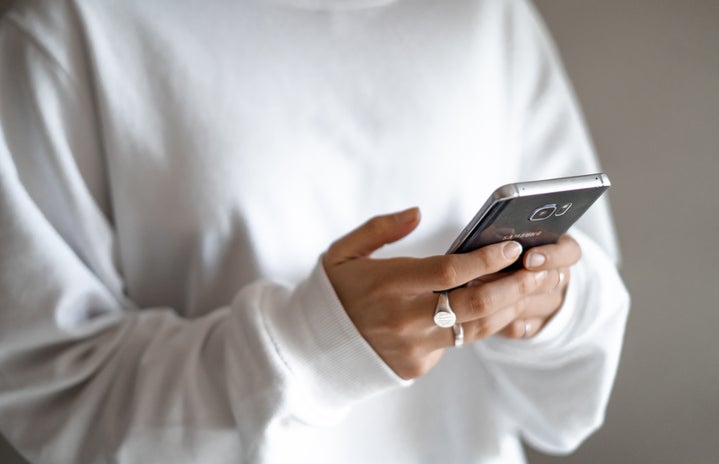You open your phone for the first time in the morning and hop onto social media. You let out a deep sigh as you scroll through your timeline, and you notice something quite disheartening. One of your favorite influencers has just been cancelled. If you haven’t been involved in social media culture for the past few years, you may have no understanding for this term “cancelled.” What exactly does it mean to be cancelled, and what do you have to do to earn this dismissive term?
Urban Dictionary defines cancelled as, “to dismiss something/ somebody. To reject an individual or idea. This definition hints that the term is used to describe individuals that are dismissible or rejectable. Not exactly how you would want to be described as, right? Now, in what context is this term applicable? How does society choose what should be cancelled, and what should be left alone? The answer to this question is muffled.
The influencers that are a part of popular social media platforms like Twitter, TikTok, Instagram, Youtube, etc. have been keen to being cancelled for quite some time now. If you’re prevalent on these platforms, then you know that influencers get cancelled every other day in 2021. What does it take to get cancelled? Well, there’s quite a list of things that an individual could do to be cancelled. Some of these actions range from things that should be held accountable like racist, sexist, or sexually exploiting events. These types of wrongdoings are commonly called out, but then there is another side of things that have been normalized to be cancelled. We cannot simply point out specific events because quite honestly, influencers are being cancelled for the most random thing nowadays. There are definite, valid points for some individuals to be called out on their actions, but quite honestly, the normalness and acceptance of the nasty and degrading cancel culture is alarming.
Cancel culture aims to eliminate influencers and those who have a platform because they did something that was not socially acceptable. Do not get me wrong, there are plenty of individuals that deserve to be held accountable for their actions and wrong doings. Especially those that do hold such powerful positions with thousands of followers that look up to them. There is nothing wrong with holding people accountable, but cancel culture is simply just not doing this. Although this may be the underlying aim of what people think cancel culture is, it has been taken to a different level on all social media platforms.
The aim of cancel culture is not to simply call those out for doing wrong and misleading things, but to ultimately cancel them and make sure they cannot continue to use their platform. And if someone who has been “cancelled” continues to push out content, internet trolls will make sure they face some type of backlash for this. The amount of hate that is already common online is astounding, and the normalization of cancel culture has only made being online a more negative and toxic place. At the end of the day, we are all human and we all make mistakes. Some mistakes are larger than others, and nonetheless we need to be able to take accountability for these mistakes. That being said, there is no reason as to why we should stop someone from continuing to grow and learn from their mistakes. Simply choosing to write them off and have them cancelled does ultimately nothing for a situation except promote the negative use of online bullying.
Influencers and those in positions of power with large audiences have started speaking on the commonness and negativity surrounding cancel culture. Popular TikToker Sienna Gomez (@siennamae) has just recently made two posts about cancel culture on her TikTok. She reiterates the fact that cancel culture is extremely dismissive and degrading. She goes on to mention the fact that recent generations have made it trendy and acceptable to bully those on the internet, and that we need to reverse these beliefs and make the internet and more accepting and positive place again.
So, next time you decide to believe the internet rumors about someone’s “cancelling,” think about this; is it really worth all of this hype? Are you going to continue to feed into the cancel culture that is so accepted and naturally believed in our society? The choice is yours.



